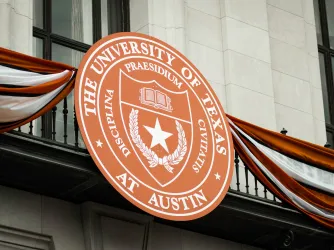Table of Contents
Texas A&M-San Antonio Claims Prof’s Dismissal a "Coincidence
As I wrote recently, FIRE has been monitoring the case of Sissy Bradford, a lecturer in criminology at Texas A&M University-San Antonio (TAMU-SA) who was suspiciously relieved of her next semester's teaching duties. Why is it suspicious? Well, because Bradford was let go within hours of the publication of an article that aired her criticisms of the university for its response to her worries for her safety. As I wrote—and as the documentation clearly illustrates—the timeline of events, coupled with Bradford's clear expectations of teaching a full load of courses in the coming fall semester, made TAMU-SA's actions look questionable at best and retaliatory at worst.
FIRE articulated these concerns to TAMU-SA in a letter sent to the university on June 1, and warned that
Dismissing faculty in the manner TAMU-SA appears to have dismissed Bradford serves to dramatically chill speech at TAMU-SA, sending the unmistakable signal to faculty that they criticize the university at their peril. As should be obvious, free speech and academic freedom cannot survive in such an environment, betraying the traditional American conception of the public college campus as being "peculiarly the 'marketplace of ideas.'" Healy v. James, 408 U.S. 169, 180. As the Supreme Court noted in Sweezy v. New Hampshire, 354 U.S. 234, 250 (1957), "To impose any strait jacket upon the intellectual leaders in our colleges and universities would imperil the future of our Nation."
The American Association of University Professors (AAUP), also wrote to TAMU-SA with similar concerns about Bradford's dismissal.
TAMU-SA was quick to respond to both FIRE and the AAUP in an attempt to defuse the controversy aroused by the timing. The response (largely the same for both organizations) from President Maria Hernandez Ferrier, Provost Brent Snow, and interim head of the College of Arts & Sciences William Bush makes a few key points that are worth addressing. First, it states:
Non-tenure-track faculty are appointed on a semester-by-semester basis according to the specific needs of the university. They are provided an appointment letter that specifies the beginning and ending date of the appointment and clearly states that "there is no expectation of continued employment." [...]
During early planning for the fall 2012 semester, Ms. Bradford was asked whether she would be available to teach in the fall 2012 semester. She was not provided an appointment letter for the fall semester.
That Bradford "was not provided an appointment letter" may be true, but it doesn't wash away the fact that, as evidence shows, Bradford had every reasonable expectation of teaching at TAMU-SA in the fall. Bradford was notified of TAMU-SA's decisions regarding her fall teaching schedule within hours of the publication of an article detailing her criticisms of the university. That deserves scrutiny.
TAMU-SA's response goes on to say that
[A]s Texas A&M-San Antonio continues to grow and pursue accreditation, bringing on full-time, tenure track faculty is a necessary part of the next stage of growth. Ms. Bradford was notified that the University would not be able to offer her any classes for the fall 2012 semester, along with approximately twenty other non-tenure-track adjunct faculty members who were similarly notified. This is part of the final process of planning for future semesters that is partly contingent on various factors, including registration.
Likewise, this does not negate the fact that Bradford had a reasonable expectation of continuing with her teaching. I can't speak for the rest of the adjunct faculty members TAMU says it has released, but if "registration" is among the factors considered in such an administrative decision, how does that square with the fact that Bradford's classes were already filling up in early April, as we pointed out in our letter?
Further, a look at the fall 2012 criminology course listings (you can find them by clicking the "Current Schedule" button here) reveals that the two sections of "Community Perspective in Crime" Bradford had agreed to teach have been removed from the roster. The two sections of "Social Deviance" she had agreed to teach have been handed (for now, at least) to head criminology faculty member Durant H. Frantzen. While FIRE is not generally concerned with how universities assign and schedule courses, TAMU-SA's actions here have prompted the question: Does cancelling two sections and realigning two more within the existing faculty structure fit their stated goal of "bringing on full-time, tenure track faculty"—or is that explanation being deployed simply to cover up Bradford's dismissal for making waves?
TAMU-SA also takes pains to assure FIRE and the AAUP that the timing is simply coincidental:
The timing of the article in the SA Current regarding Ms. Bradford's opinions of the University was pure coincidence in relation to the notification messages. In addition, Dr. Bush [who notified Bradford on May 16 that she would not be rehired] was not aware of the article when he provided Human Resources the list of adjunct faculty that would not be asked to return in the fall.
Could this all actually be a coincidence? Yes, it's within the realm of possibility. But FIRE's collective experience has often shown that what universities claim is coincidental often isn't, and we can't just take TAMU-SA's word for it and move along. TAMU-SA, which has only been around a few years, can blame its badly-behaving peer institutions and their administrators for our skepticism there.
Lastly, TAMU-SA states:
Students, staff and faculty regularly express a variety of views in and out of the classroom at Texas A&M-San Antonio; it is our duty to protect their right to do so, and to provide a safe place for the expression of ideas - no matter how controversial. The notion that the University would retaliate against any faculty member, adjunct or tenure-track, for expressing their personal views, is a contradiction to the mission of Texas A&M-San Antonio.
Here, we're in complete agreement. But FIRE isn't going anywhere until we can be certain that TAMU-SA is living up to its responsibility to preserve a marketplace of ideas for student and faculty expression. We'll keep Torch readers updated as we continue our investigation.
Recent Articles
FIRE’s award-winning Newsdesk covers the free speech news you need to stay informed.

FIRE and ACLU of TX: University of Texas must drop unconstitutional drag ban

FAQ: Responding to common questions about the fight between Harvard and the Trump administration

George Mason University calls cops on student for article criticizing Trump
